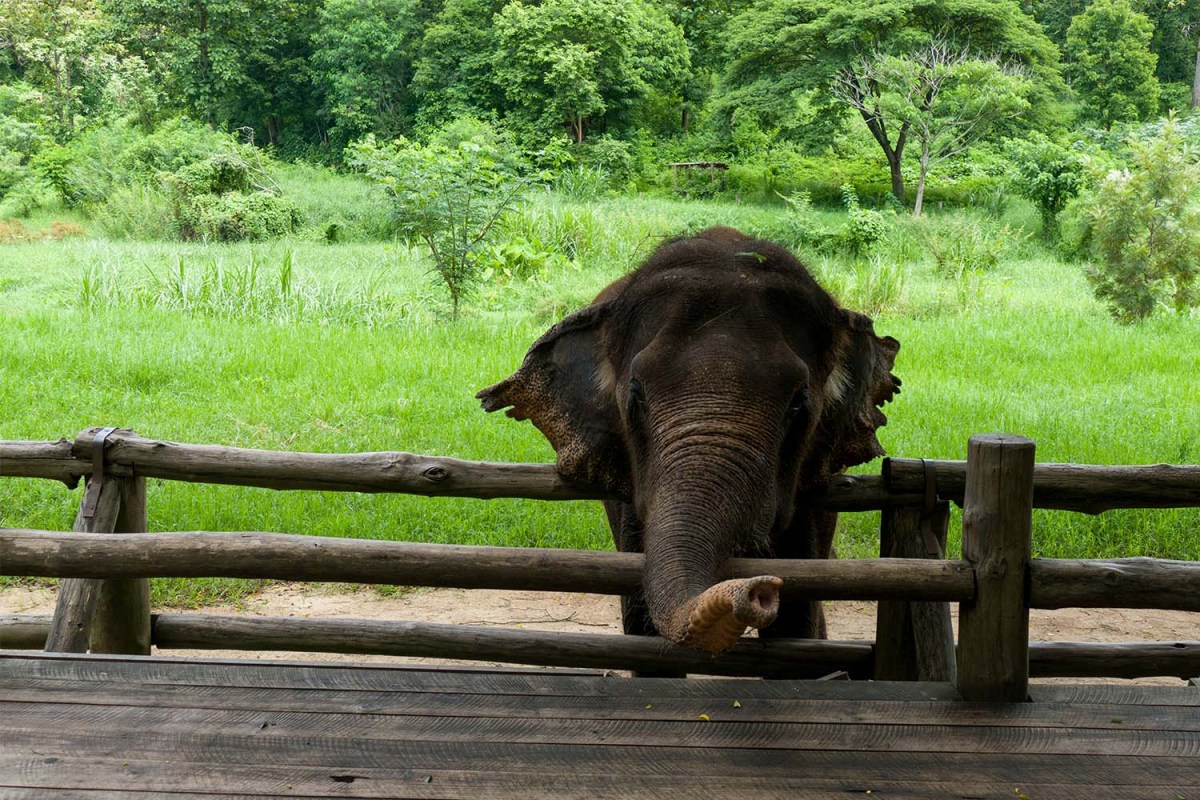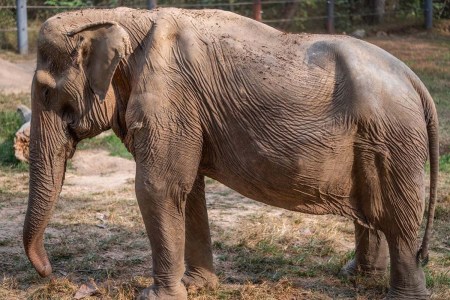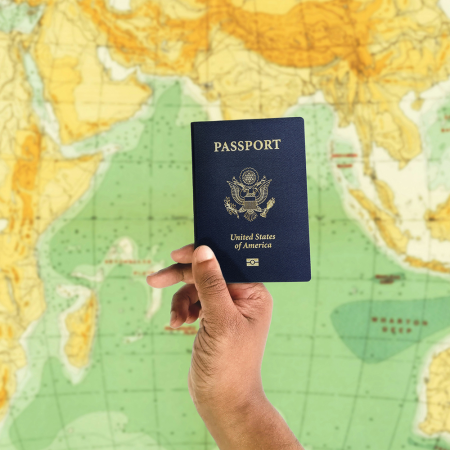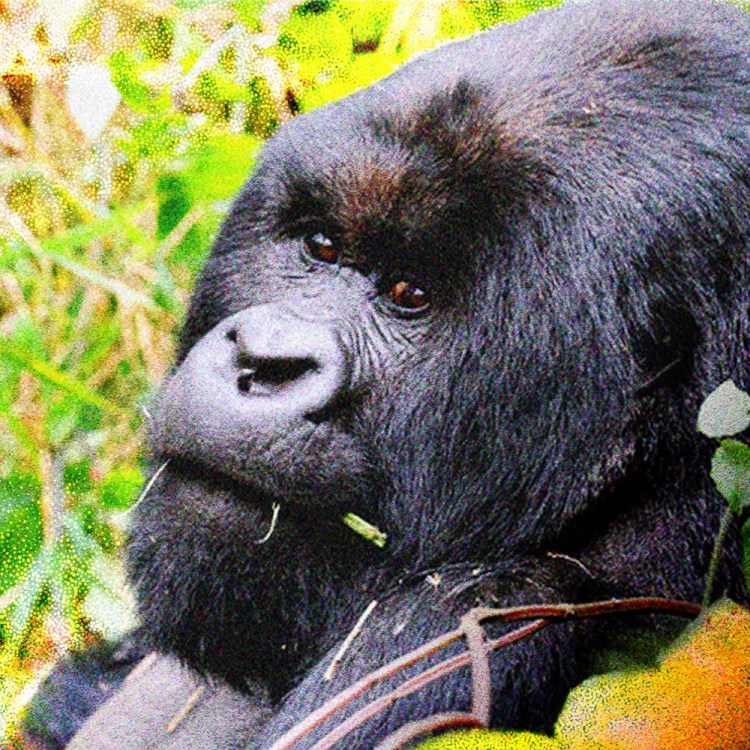Why are we still doing the elephant thing? Despite what we know about the conditions of many animal “sanctuaries” and the myriad campaigns denouncing it (back in 2016, TripAdvisor actually banned ticket sales to physical encounters), in many Southeast Asian countries — Indonesia chief among them — the opportunity for tourists to get up close and personal with elephants, as well as other indigenous species, is still one of the biggest draws. Why?
Maybe it’s because, in spite of years of overwhelming evidence, we’re somehow still able to assuage our guilt by telling ourselves we’ve done our due diligence by identifying the outliers — the sanctuaries, the places offering refuge to the animals we so badly want to, what? Ride? Pet? Hold? Well, buckle up for this: there are no outliers. Or at least very few.
Per a new report from Travel Pulse, which details an investigation titled “Paradise Lost,” virtually every single wildlife venue observed by World Animal Protection on the Indonesian islands of Bali and Lombok was found responsible for inflicting “unimaginable anguish [on] over 1,300 animals, including elephants, orangutans and dolphins.”
“In the name of tourist entertainment, these animals endure deplorable conditions, as well as abject physical, mental and emotional trauma,” Laurie Baratti reported. “World Animal Protection’s distressing findings highlight that the majority of the investigated venues fail to meet even the most basic needs of the wild animals they hold in captivity.”
Of the venues assessed, 10 were wildlife entertainment venues, four were predominantly rescue and rehabilitation facilities, three were venues or experiences with free-roaming wildlife, one was a ‘mini-zoo’ and selfie venue and 16 civet coffee venues.
Years of Tourists Riding on Elephants Is Leading to Disfigurement
It’s high time we say goodbye to this “attraction” once and for allIt’s the first investigation into these venues by World Animal Protection since 2017, and while a handful have made some improvements to the conditions under which the animals are kept, none were significant enough to result in a venue being rated even close to “best possible.”
In every instance, elephant handlers were observed with bull-hooks — or fire poker-like devices used to jab elephants in the most sensitive parts of their bodies — or other pointed implements to express and reinforce their dominance over the elephant. At the prominent Mason Elephant Park & Lodge, elephants were chained in isolation for several hours to restrict movement. At one of the largest sea turtle venues, Bali Fantasi Benoa Bay — which is home to around 40 turtles, including the critically endangered hawksbill turtle and the endangered green turtle, as well as the vulnerable loggerhead and olive ridley species — turtles were being kept in small, overcrowded tanks with barely enough water to submerge; and dolphins and primates appeared underfed, in some cases overfed, bored and generally agitated.
In effect, for the past six years, conditions have remained largely the same. Attractions such as elephant riding and bathing, interactions, photo opportunities, swimming with dolphins in artificial pools, and touching turtles in small pens are still being offered. And they’re still being offered because tourists are still seeking them out.
“Bali might be a paradise for tourists, but wild animals are living in misery in venues across Bali,” said Liz Cabrera Holtz, Senior Programs Manager, World Animal Protection, U.S. “World Animal Protection is warning U.S. tourists that there is currently no ethical way to view wild animals at tourist venues in Bali and Lombok. Tourists have a responsibility to ensure their travel experiences are not hurting animals. We’re urging all travelers to steer clear of all wild animal venues and instead support places like accredited sanctuaries and Wildlife Heritage Areas.”
World Animal Protection has some advice there, too: always pick “observation” over “interaction,” avoid close encounter experiences, pick a responsible travel company, share your responsible travel adventures, don’t share or like social media posts that show animal cruelty and never shop for souvenirs with animal products. Luckily, wildlife wellbeing is becoming increasingly more central to the eco-tourism conversation. That said, it would behoove all of us to be on the right side of that conversation.
This article appeared in an InsideHook newsletter. Sign up for free to get more on travel, wellness, style, drinking, and culture.


























